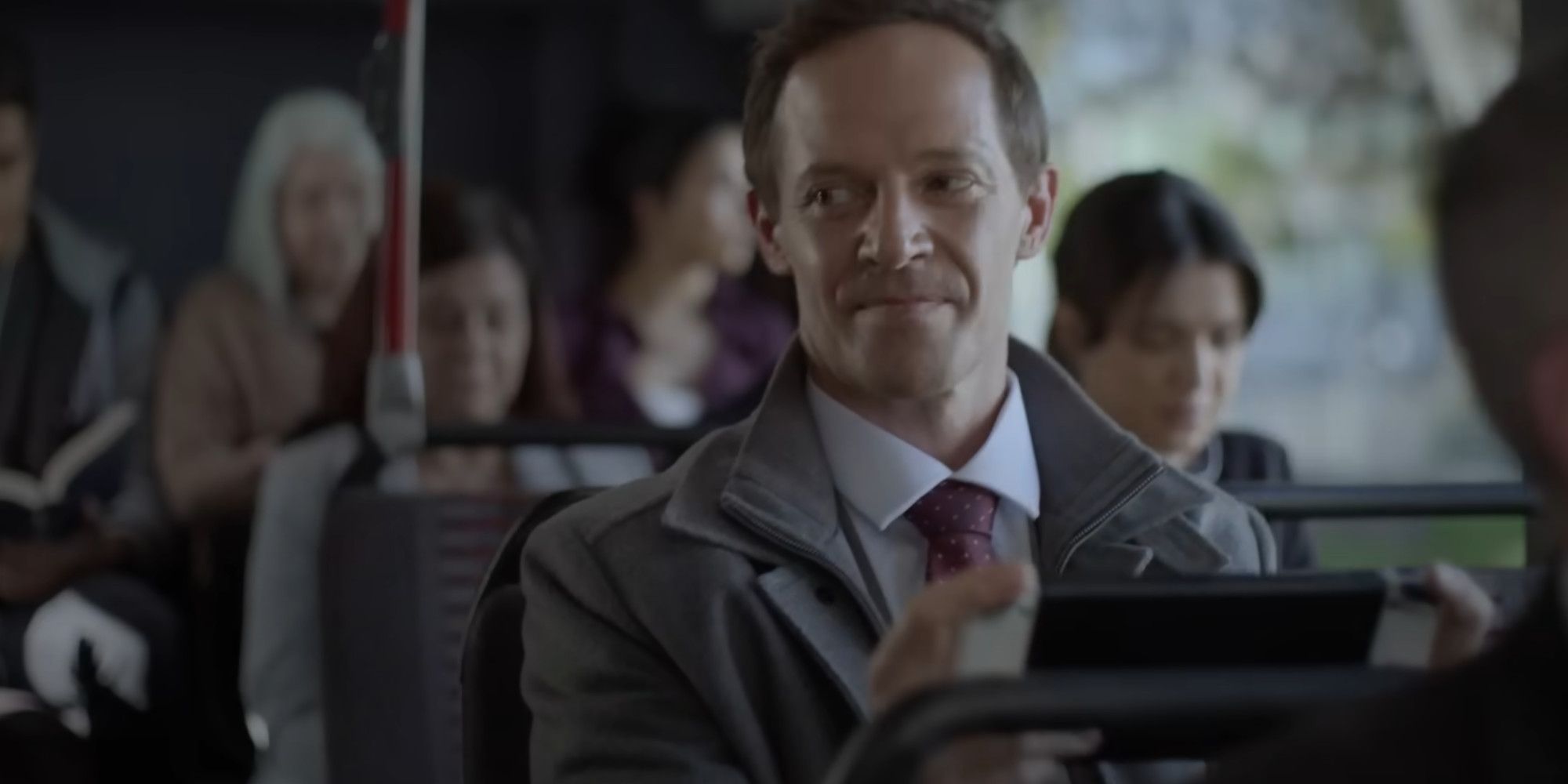The new commercial for Tears of the Kingdom, which tells the story of a burnt-out business man rediscovering his sense of adventure while playing the new Zelda game, is a total bummer. Its gray, moody cinematography and melancholic tone feel like an inappropriately dour way to advertise a Nintendo game about building flying cars in Hyrule, and I’m not surprised to see it getting memed on social media. What does concern me is the people unironically talking about how relatable it is, and how insightful Nintendo is for making it. You’d think a decade of Mad Men would give people a better sense of the ethos of advertising, but let’s be clear about one thing: there’s nothing novel or shrewd about a brand telling you that buying its product will make your shitty life less shitty. The sad guy Zelda commercial is not the kind of marketing anyone who loves games should be celebrating.
You should watch the commercial yourself if you haven’t seen it, but I’ll describe it anyway so that we’re on the same page about what exactly it's depicting. It begins with a middle-age man climbing onto a busy public bus. He’s dressed in dark tones, just like everyone else on the bus with him. It’s a dark, overcast day, and you get the impression that this is part of the man’s everyday routine. As he takes his seat he gives an unseen passenger a sheepish, uncomfortable grin, then lets out an exhausted sigh. He looks out the window, the world is gray. Somber piano music starts to play. For a moment he catches a glimpse of his own reflection, then quickly looks away and sighs again.
At night, he returns to his dimly lit home. He sighs again as the door closes, but he doesn’t announce himself. As he enters the kitchen to fill a glass with tap water, his wife approaches. Instead of a warm embrace, she hastily gives him a consolatory rub on his arm before heading to bed. The man heads to the living room with his water and starts playing Tears of the Kingdom.
The piano music changes to an uplifting arrangement, and we watch him learn how to play the game. As he explores the world and makes discoveries, he smiles for the first time. He’s focused, engaged, and verbalizing his emotions. He’s solving problems, and enjoying the rewards that come with it. Finally, we see him on the bus again, only this time he has his Switch. As he plays, he’s just as enthusiastic as he was the night before. In the final moment of the commercial, he looks out the window, sees a beautiful blue sky, and smiles. He sighs once again, but this time, it’s a sigh of relief. Life is beautiful again, thanks to The Legend of Zelda: Tears of the Kingdom.
The intention of the commercial is entirely unambiguous. This vaguely handsome everyman whose life is a miserable, colorless doldrum; whose existence is defined by monotony; whose own wife won’t even kiss him before she heads off to bed; that man is you. You live a mundane, unhappy life. You are stuck in a boring dead-end job. Your world is gray and hopeless. But don’t worry, because Nintendo has the cure. Buy our new video game, and you can see color in the world again. This game will rescue you from your rueful malaise.
There’s nothing new about this kind of marketing. Every brand from Nike to Tampax has told the exact same story at one point or another. This is one of the easiest and most dishonest forms of advertising because it starts from a position that tells the customer they are unhappy, then tries to convince them that whatever they’re selling will solve their problems. Share a Coke and make the world a better place. Play Tears of the Kingdom and reignite your childlike sense of adventure.
The only thing that makes any of this unique to gamers is our weirdly unhealthy fixation on escapism. A lot of people believe that the value video games add to their lives is the opportunity to escape from it. This is why people say they hate politics in games, or criticize the “woke agenda”. They want none of it to be real and none of it to matter, that way they can dissociate from themselves and live in a fantasy world.
I saw a sketch on TikTok once that I really liked, which I’ll never find again thanks to TikTok’s unusable search bar. A guy is telling his friend that he desperately needs a vacation and that he’s convinced it will heal his soul and change his negative perspective. It then cuts to him in an exotic locale overlooking a beautiful beach, and he says, “It turns out I need therapy, but at least the view is nice.”
I’m worried that so many people are comfortable embracing the premise of this Zelda ad. I wouldn’t deny that games can be therapeutic - I don’t think I could have made a career writing about them if I thought that - but this idea of living for the next triple-A game release is not going to lead us anywhere good. Exploring the fantasy world of Hyrule should be something that enriches your life, not the thing that stops you from ending it. No one should be playing games as a way to self-medicate, and Nintendo shouldn’t be advertising Zelda as a tonic for what ails you either. Show us the gameplay and tell us what makes it worth $70, but don’t try to convince us our sad little lives would be so less sad if we bought it.
Next:

